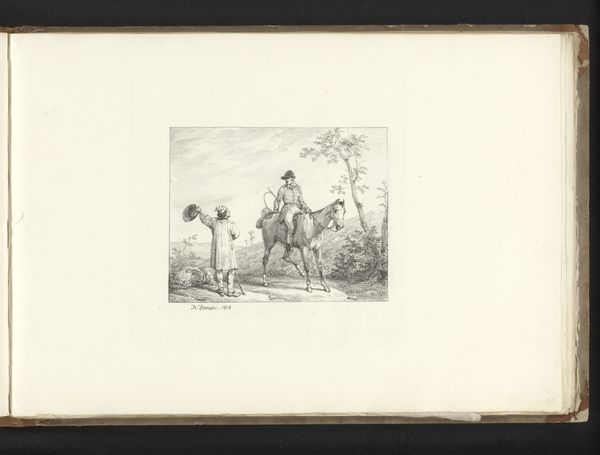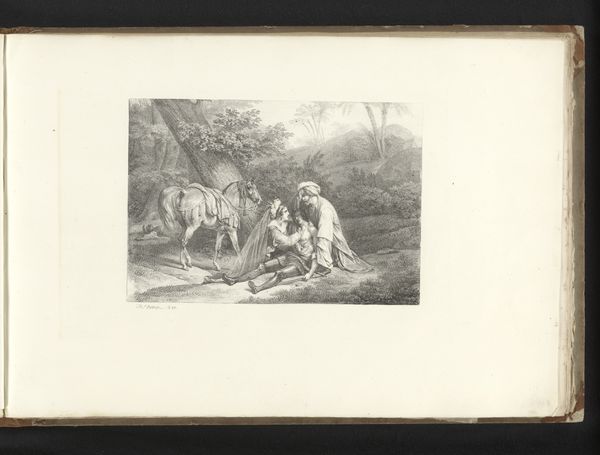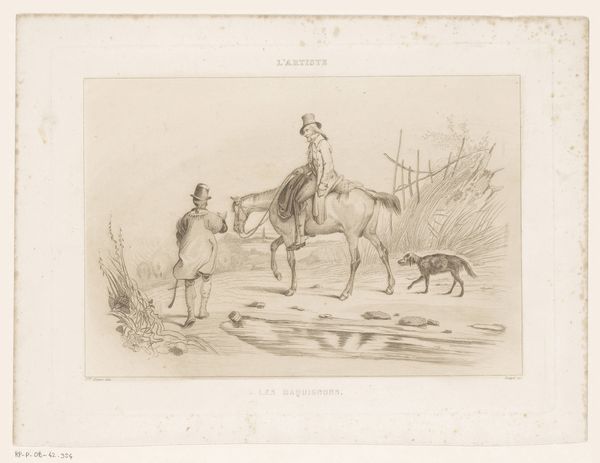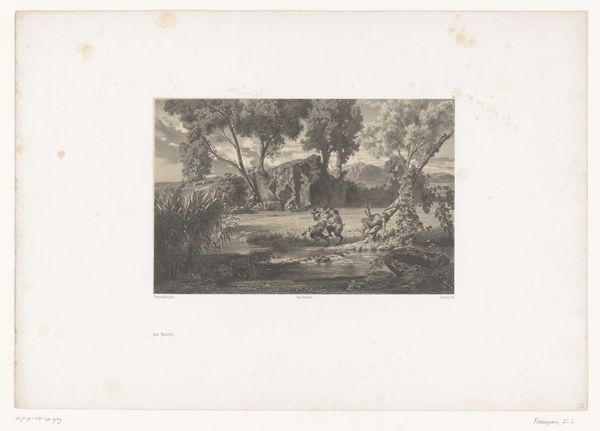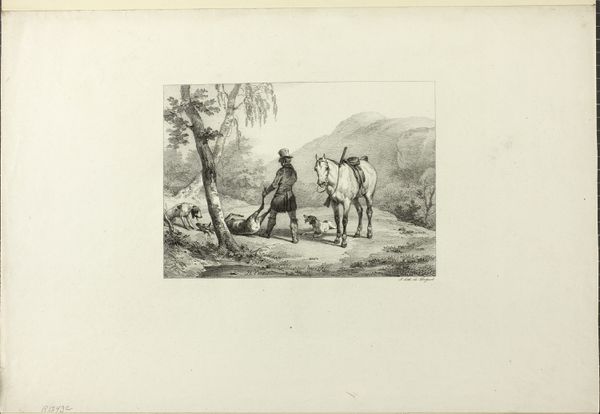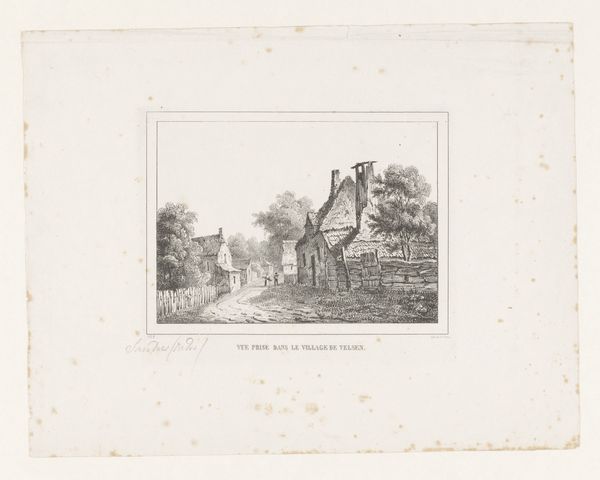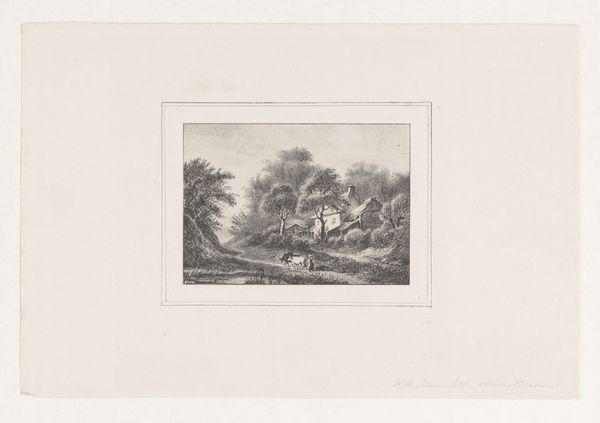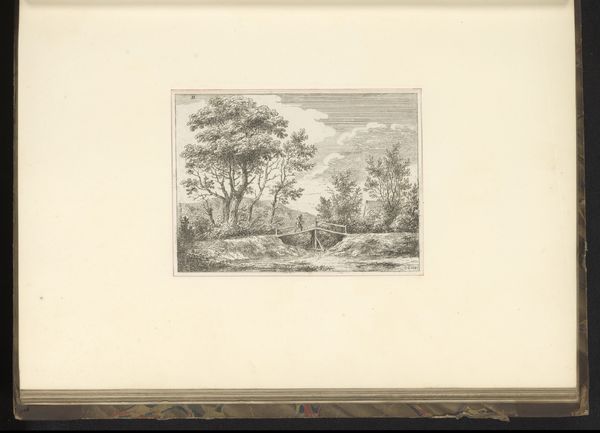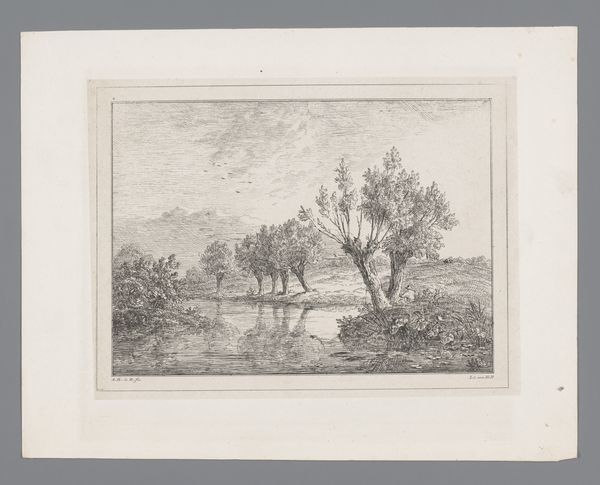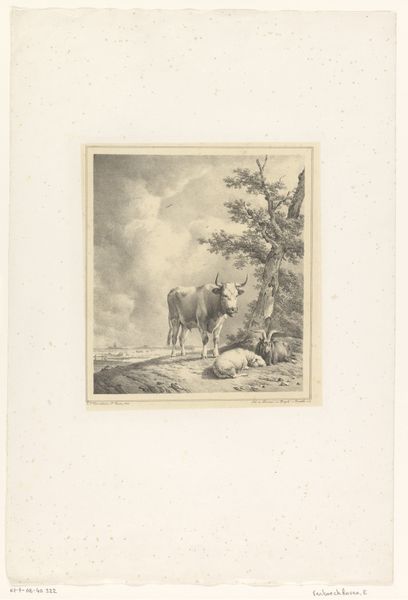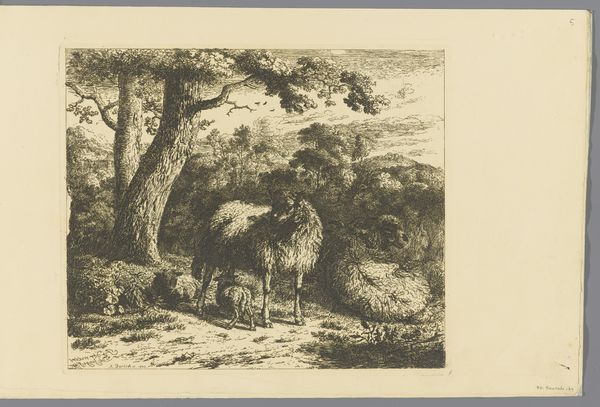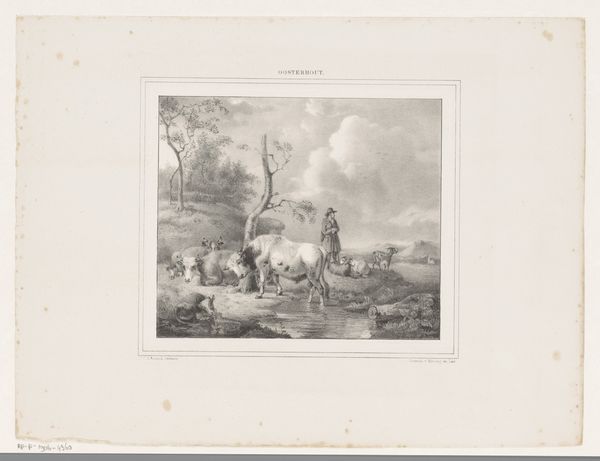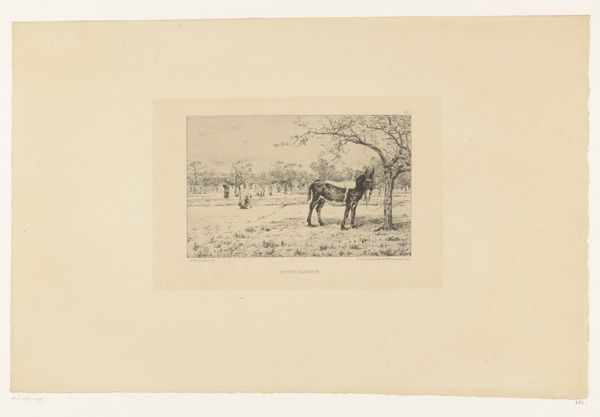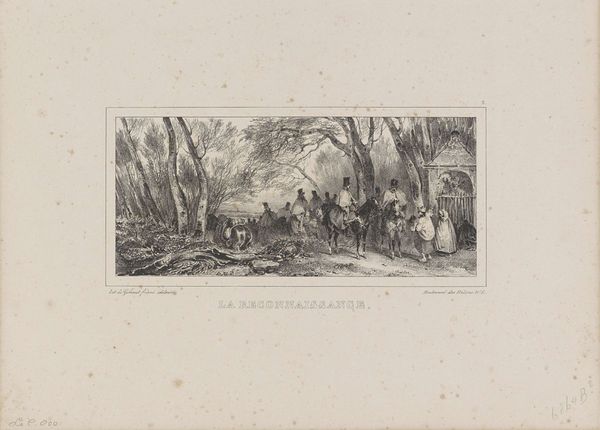
drawing, pencil
#
drawing
#
landscape
#
romanticism
#
pencil
#
genre-painting
Dimensions: height 299 mm, width 435 mm
Copyright: Rijks Museum: Open Domain
Curator: Before us is an intriguing drawing from 1818 by Horace Vernet, called "Spinnende boerin bij koeien" or "Spinning farm woman with cows," now held in the Rijksmuseum collection. It's pencil on paper, portraying, unsurprisingly, a bucolic scene. Editor: It strikes me as surprisingly serene for something depicting labor. The light is soft, and the lines delicate. The woman appears completely at ease with that giant cow! There is so much space around, creating calm… and then the work required to survive. Curator: Vernet's Romantic style emphasizes the idealized harmony between humans and nature, but I agree, there's a compelling contrast here. He presents a genre painting – a glimpse into everyday life – but imbues it with this almost mythical stillness. Notice the material details: the woman's traditional clothing, her spindle, the weathered fence – all elements tied to a specific time and place, but elevated through his artistic hand. Editor: It’s all very picturesque, isn’t it? A cleaned-up version of rural life. I wonder about the economics behind the scene – spinning wool into yarn or thread was a valuable skill. This image hints at a material chain, the cow's wool becoming textile goods, which in turn, is labour offered at the market. The farm woman's labor sustains the household but is framed by her isolation in nature, romanticized to the extreme, maybe, with an ignorance of the actual toil of work? Curator: It's a dance between the real and the romantic, I think. Vernet wasn’t unaware of the hardships of rural life, but perhaps he wanted to highlight something different—the inherent dignity and quiet perseverance found in even the most humble existences, as someone with city taste would assume, even. What's intriguing is the medium itself – pencil, immediate, intimate. Editor: Precisely! Pencil implies preparation, a sketch from life which softens any political reading. Yet, consider the social context. The rise of industrial textile production threatened those traditions the artist records with what some considered the beauty of their slow rhythms. I guess in an industrial age, portraying manual work becomes inherently political. Curator: In Vernet's rendition, spinning isn't just work; it's a way of life, a connection to the land and animals. A rather idealized view as seen now… but with its own artistic, perhaps deliberately naïve power. Editor: Perhaps that’s the strength of the piece, too: simplicity inviting us to consider labour and life—one farm woman, her spindle and cow, holding open the contradictions within a historical lens. A good day’s work to unpack from Vernet.
Comments
No comments
Be the first to comment and join the conversation on the ultimate creative platform.
